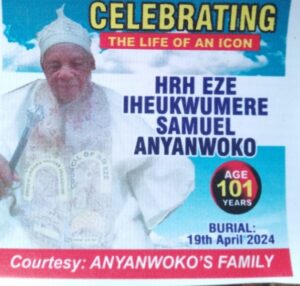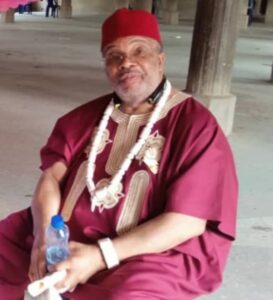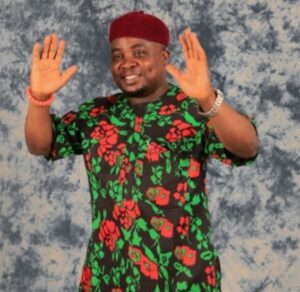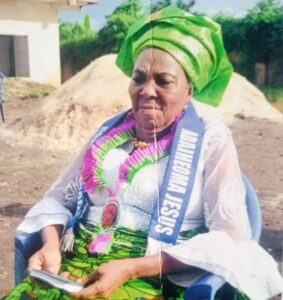2023 General Elections: The Tragic Misjudgments of Soludo, el-Rufai By Olu Fasan.
5 min read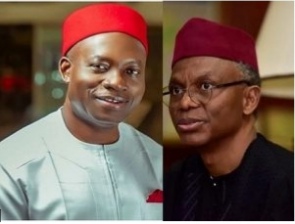
Someday, chroniclers of history will tell the stories of the 2023 general elections, the worst in Nigeria’s recent history. They will narrate the noble and ignoble roles played, respectively, by heroes and villains of the elections. Among the political class, villains abound. But two interest me here: Professor Charles Soludo, current governor of Anambra State, and Mallam Nasir el-Rufai, outgoing governor of Kaduna State. Neither covered himself in glory!
You might ask: why single out Soludo and el-Rufai? Well, few political office holders in Nigeria today entered politics with the technocratic pedigree of Soludo and el-Rufai: the former was a smart presidential economic adviser who became a reformist governor of the Central Bank; the latter, a brilliant director of the Bureau of Public Enterprises who became a transformative Minister of the Federal Capital Territory, Abuja. Both are first-class technocrats and administrators.

But that’s the point of this intervention. Yes, they’re outstanding technocrats and administrators, but they’re dreadful politicians. Truth is, technocracy is not enough. To succeed, “technopols,” as economists Jorge Dominguez and Richard Feinberg call technocrats in politics, must possess non-technocratic qualities, such as integrity, tolerance, and humility. Yet, Nigerians celebrate technocrats without looking for these “soft” qualities. I, too, contributed to the glorification of Soludo and el-Rufai.
In 2015, shortly after he was sworn in as governor of Kaduna State, el-Rufai took some radical measures to cut the cost of governance. I praised him in a piece titled: “El-Rufai’s exemplary leadership on cost of governance” (BusinessDay, June 29, 2015). Last year, when Soludo became governor of Anambra State, I hailed him in a piece titled: “Soludo: A philosopher-king emerges in Nigeria”(Vanguard, March 31, 2022). I was beguiled by the halo effect of their technocratic past.
But I should have known they lacked non-technocratic qualities. After all, in his long-running didactic and disparaging articles against Dr Ngozi Okonjo-Iweala in 2015, Soludo showed he could fight dirty, prompting the latter’s remarks that Nigerians should beware of “so-called intellectuals without character and wisdom.” And didn’t former President Obasanjo describe el-Rufai as “a pathological purveyor of untruths and half-truths with little or no regard for integrity”? He did (My Watch, Vol 2, pages 110-112)! Yet, the worst in Soludo and el-Rufai emerged as politicians. To varying degrees, they’re hubristic, intolerant, and divisive.
For instance, although he denied the allegations, Soludo was accused of instigating the police arrest of Labour Party activist, Chude Nnamdi, and of influencing the outcome of the House of Assembly polls on March 18. In one video, he said those who didn’t vote for his party in the elections would suffer consequences. There’s no smoke without fire. The fact that Soludo is even remotely linked with these allegations undermines his technocratic credentials and the promises in his inaugural speech to be “the chief servant” of Anambra people and shun profligacy. Consider his lavish “one year in office” celebration last week!
As for el-Rufai, well, he’s utterly beyond the pale. His state, Kaduna, is one of Nigeria’s most ethnically and religiously polarized; yet el-Rufai is Nigeria’s most ethnically and religiously divisive governor. He defiantly runs a Muslim-Muslim governorship in utter disregard for, and insensitivity to, the large but marginalized Christian population in Southern Kaduna. Unfortunately, he also has a toxic influence on national politics, acting against the national interest, against the imperatives of religious harmony and internal cohesion in Nigeria.
El-Rufai was the brain behind Bola Tinubu’s Muslim-Muslim ticket. He wanted to escalate the divisive approach that has destabilized Kaduna, a multi-ethnic, multi-religious state, to Nigeria, a multi-ethnic, multi-religious country. Yet, the people of Kaduna State rejected Tinubu’s Muslim-Muslim ticket. He secured only 29 per cent of the lawful votes cast!
However, once INEC declared Tinubu “winner” of the sham presidential poll, el-Rufai and his party began to use the prospect of a Muslim-Muslim presidency at the centre to campaign for the Muslim-Muslim ticket of his anointed successor, Uba Sani, and his Muslim running mate, Hadiza Balarabe, and viciously unleashed state security forces on the opposition.
Even so, the majority of Kaduna State voters rejected the APC candidate. But INEC declared Sani “winner” with a margin of 10,000 votes while it invalidated 19,114 votes and ignored the disenfranchisement of voters in opposition strongholds through sponsored violence. With an independent and impartial judiciary, Sani’s “election” won’t stand. But that’s a matter for the election tribunal and the courts.
Which brings us to Soludo and el-Rufai’s irrational and malicious attitude towards Peter Obi, Labour Party’s presidential candidate. They would be right to oppose Obi on party-political grounds, but their attitude was driven by sheer personal animosity. El-Rufai hated Obi viscerally; Soludo loathed him. But they underestimated Obi in the presidential election.
I mean, el-Rufai said Obi was a “Nollywood actor”, not a serious candidate. Yet, Obi nearly level-pegged Tinubu in Kaduna State, securing 294,494 votes (21%) against Tinubu’s 399,293 (29%). Soludo said the contest was between Tinubu and PDP’s Atiku Abubakar, adding: “the rest is exciting drama.” Really?
Sadly, Soludo’s reputation as an economics professor with strong analytical and predictive power is dented. In his polemical article titled: “History beckons, and I will not be silent (1)”, Soludo appealed to ethos, to authority, staking his professional credibility on predictions he said were based on “my head and facts on the ground”. Yet, he was fixated on “structure”.
Soludo said Obi would get 25 per cent in just four states; he won 12 states outright, including Abuja and Lagos, and evidently won Rivers State too! Of course, Soludo’s overall thesis was that Obi “can’t win and won’t win”. Well, truth is, Obi won more than the 6.1m votes and 12 states declared by INEC; his votes were distorted nationally. But let the judiciary decide! In his cynical congratulatory message to Tinubu, Soludo said Nigerian youths were the “true heroes” of the election. But who inspired the youths, if not Obi? History beckoned, but Soludo chose to be on the wrong side of it!
So, yes, Soludo and el-Rufai are excellent technocrats and administrators, but they are deeply flawed politicians. Nigeria needs technocrats in political leadership, but, beyond technocracy, they must have integrity and sound political judgment!
*Dr. Fasan is a public affairs analyist.l

